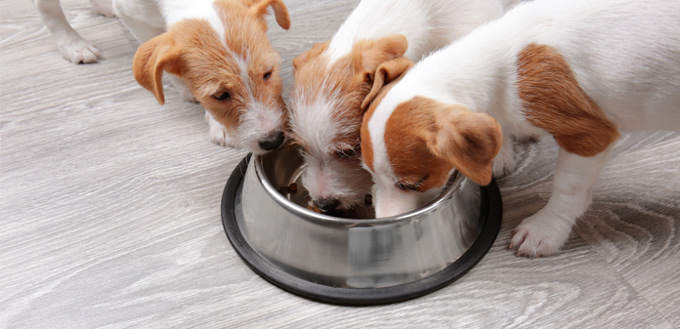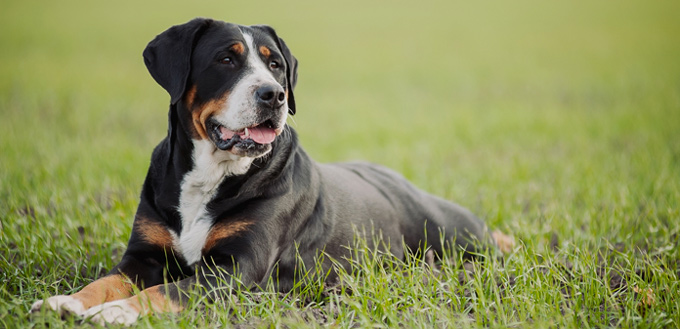Yes, dogs can eat beans, and not just the black variant but all other types as well. In fact, your four-legged friend is likely to enjoy eating all kinds of delicious beans. Among the variety of beans available, Pinto beans, kidney beans and black beans form a great source of plant-based proteins for dogs.
A healthy food habit implies good health and pets, particularly dogs, are no exception to this rule. Returning home to a pet especially a dog is a feeling that only a dog lover can comprehend, and to maintain that feel-good factor, a proper diet for your furry friend is a must. Maintaining a healthy diet would not just ensure good health but also accrue satisfaction that you as the owner are doing a good job of taking care of your canine companion.
Dog owners keep wondering what can be the best source of proteins, vitamins or minerals that could be incorporated in their pet’s diet. Well, an easy solution to this query is to include beans. Proteins play a vital role in shaping up a dog’s health and black beans are a rich source of protein. They also provide other nutrients, like Vitamin C, Vitamin K, B-vitamins, potassium and other minerals.
Little though it might seem, this morsel is power-packed with many of the required nutrients and is truly beneficial for a dog. However, like everything else that is useful, it should also be served in a moderate amount.

Why Should Black Beans Be Included in Your Dog’s Diet?
These omnivores’ protein requirement is much higher than that of humans. Thus, foods containing healthy balance of amino acids are essential. Like meat, beans are equal source of protein in a stable canine diet. Type of protein found in black beans contains amino acids in sufficient quantities so as to serve as the building blocks for the dog’s structural growth and strength. Protein thus generated helps in maintaining a glossy coat and healthy heart muscles.
Black beans also provide the canine with micronutrients like iron, manganese, potassium, folic acid and phytonutrients. All these nutrients serve to enhance the immunity system of your pet and also ensure protection of both muscular and nervous systems. Thus they will be less vulnerable towards health issues over their life span.
How Black Beans Could Benefit Your Dog
On being properly cooked and served in limited quantity with minimal flavorings, black beans can benefit dogs in multiple ways, some of which are listed as follows:
- They are a rich source of protein. For a dog, it is the protein content of black beans which is the most satiating macronutrient.
- Dietary fibre found in these beans is zero calories, meaning on consumption, it remains undigested as a dog’s physiology cannot process it. This fibre is nontoxic and is reserved in the stomach without producing any energy and facilitates in burning fat. Hence, overweight canines that need to shed extra flab can benefit from this nutrient.
- Black beans also work as antioxidants. They protect your canine from constipation, although an overdose might lead to stomach upset.
- This food group also helps in regulating the blood sugar level in dogs, thereby lowering the risk of diabetes.
You May Also Like: Best Glucose Monitors for Dogs
Exercising Moderation with Black Beans
No one likes a dog that keeps passing gas throughout the day. Many dog owners opine that feeding their dog black beans led to plenty of stink around the home. Actually, the trouble is not with the beans, but with the quantity that is being served.
Incorporating too much black beans in your canines’ diet can be precarious. It should be given in small portions as it is not a natural food for canines. Excess amount could lead to indigestion, bloating, gas, queasiness or diarrhoea. Black beans that have been cooked with ingredients like onion, garlic or too much salt or sugar should be restricted.
Under no circumstances should your dog be allowed to eat black beans in raw state. These are strictly forbidden because if swallowed, these could obstruct their airways or intestines. Even in cooked form, because the moist texture of black beans hinders healthy dental growth of a dog, it might lead to cavities and gum problems.
Overall, black beans should be treated more as a side dish rather than a main course.

How to Incorporate Black Beans in Your Dog’s Diet
Are you wondering how to coax your canine companion into eating black beans? Well, before serving your dog black beans soak them overnight, rinse well the next day and then cook thoroughly to prevent gas formation. Avoid salt and once they are soft, smash them and mix with rice or meat.
Final Word
Black beans are delicious and easily available and hence can be included in a dog’s diet. It is easy to cook and can be consumed daily without any remarkable side effects if served in partial amounts. As long as you treat it as a supplementary and not the main meal, your dog can surely eat black beans and also benefit from its inclusion in its diet.







